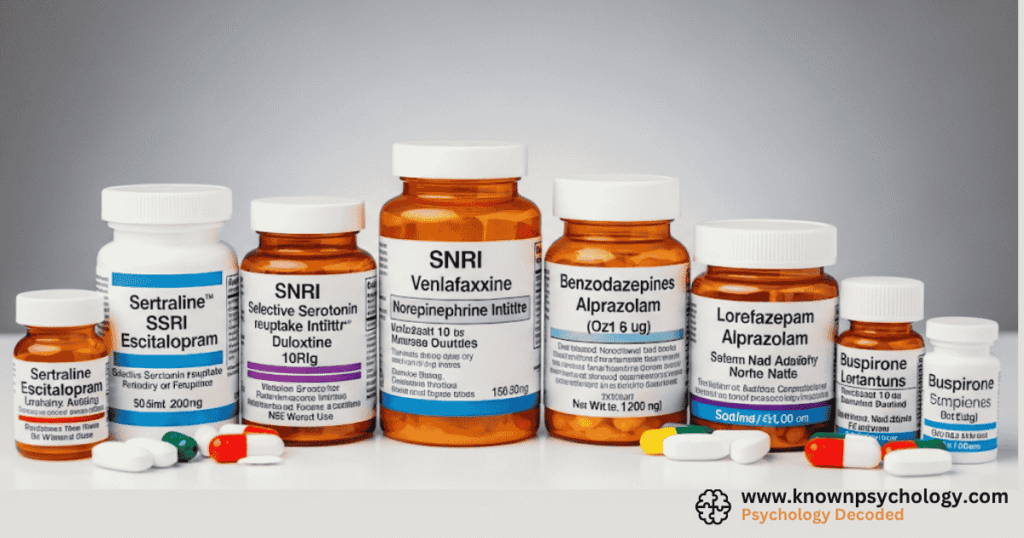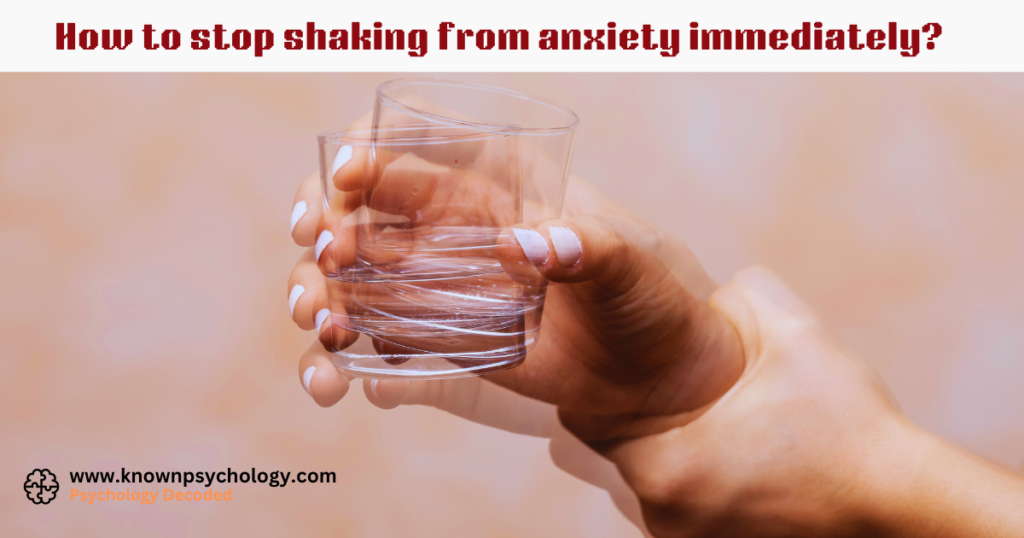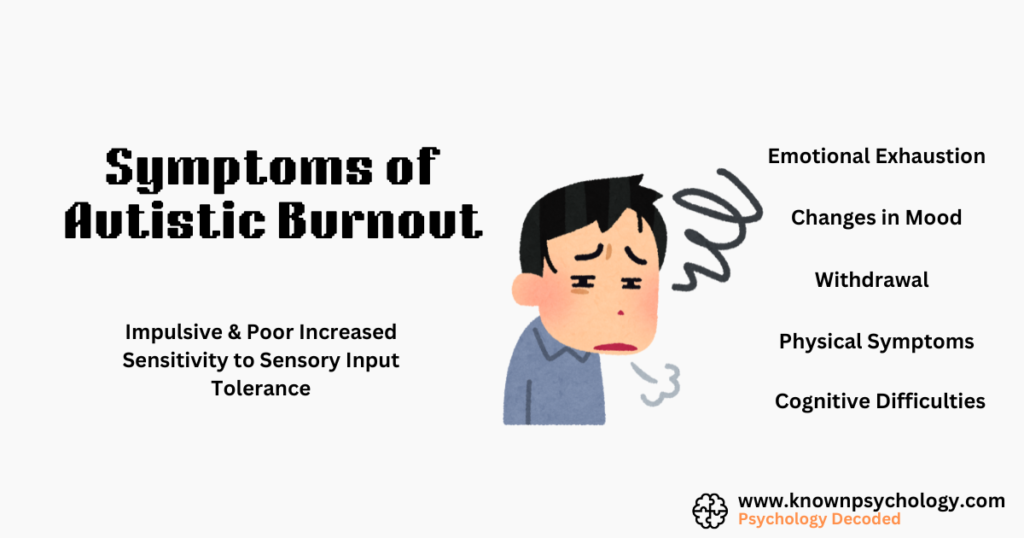
Anxiety is a common mental health condition that affects millions of people around the world. It can make you feel nervous, stressed, or even scared for no clear reason. Luckily, there are many medications that can help manage these feelings. If you or someone you love is struggling, it’s important to know your options.
In this guide, we’ll answer the question: What are the top 10 medications for anxiety? We’ll explain how they work, what to expect, and how they may also help with depression.
Key Takeaways
- Many medications can help reduce anxiety symptoms.
- Some drugs also treat both anxiety and depression.
- Always speak to a doctor before starting or changing any medication.
- Medications work best when combined with therapy and lifestyle changes.
What Are the Top 10 Medications for Anxiety and Depression?
Many people suffer from both anxiety and depression at the same time. Several of the top anxiety medications also treat depression effectively.
Here’s a quick look at medications that help both conditions:
- Sertraline (Zoloft) – SSRI
- Escitalopram (Lexapro) – SSRI
- Venlafaxine (Effexor XR) – SNRI
- Duloxetine (Cymbalta) – SNRI
- Mirtazapine (Remeron) – Antidepressant
- Buspirone (Buspar) – Anti-anxiety agent
- Amitriptyline – TCA
- Imipramine (Tofranil) – TCA
- Gabapentin (Neurontin) – Off-label use
- Pregabalin (Lyrica) – Off-label use
These drugs help balance brain chemicals linked to mood and stress, giving relief from both anxiety and depression symptoms.
1. Selective Serotonin Reuptake Inhibitors (SSRIs)
SSRIs are often the first treatment doctors suggest. They work by increasing serotonin levels in your brain, which helps you feel calmer and happier.
Common SSRIs:
- Sertraline (Zoloft)
- Escitalopram (Lexapro)
- Paroxetine (Paxil)
These are safe for long-term use and help both anxiety and depression. However, they may take 2 to 4 weeks to show full results.
2. Serotonin-Norepinephrine Reuptake Inhibitors (SNRIs)
SNRIs are similar to SSRIs but also boost norepinephrine, another brain chemical that improves mood and focus.
Common SNRIs:
- Venlafaxine (Effexor XR)
- Duloxetine (Cymbalta)
These are great choices for people who suffer from both anxiety and depression. They also help with nerve pain in some cases.
3. Benzodiazepines
Benzodiazepines are fast-acting medications that provide quick relief from anxiety. But they can cause dependence if used for a long time, so doctors only recommend them for short-term use.
Common Benzodiazepines:
- Alprazolam (Xanax)
- Lorazepam (Ativan)
- Diazepam (Valium)
They are ideal for panic attacks or very high anxiety levels, but should be used with care.
4. Buspirone (Buspar)
Buspirone is a unique anti-anxiety medication that is non-addictive and safe for long-term use. It takes about 2–3 weeks to start working but is very effective for generalized anxiety disorder (GAD).
It is not a sedative, so it doesn’t cause drowsiness like benzodiazepines. Buspirone is also often combined with SSRIs or SNRIs for better results.
5. Beta-Blockers
Beta-blockers are usually used to treat high blood pressure, but they also help control physical symptoms of anxiety like fast heart rate, shaking, or sweating.
Common Beta-Blocker:
- Propranolol (Inderal)
These are best for performance anxiety, such as speaking in public or taking an exam. They don’t treat long-term anxiety, but they are helpful in specific situations.
6. Hydroxyzine (Vistaril)
Hydroxyzine is an antihistamine that can reduce anxiety. It acts quickly and doesn’t cause addiction, so it’s often used as a short-term option before SSRIs start to work.
It can cause sleepiness, so it’s sometimes used at night to help with anxiety and sleep problems.
7. Mirtazapine (Remeron)
Mirtazapine is an antidepressant that also helps reduce anxiety. It is useful for people who have trouble sleeping or eating, as it increases appetite and improves sleep.
This medication is helpful for anxiety and depression, especially in people who cannot tolerate SSRIs.
8. Tricyclic Antidepressants (TCAs)
TCAs are older medications that are still used when SSRIs or SNRIs do not work. They can help with both anxiety and depression, but they may cause more side effects like dry mouth or dizziness.
Common TCAs:
- Amitriptyline
- Imipramine (Tofranil)
They are not the first choice anymore, but they can still be effective in certain cases.
9. Gabapentin (Neurontin)
Gabapentin is mostly used for nerve pain and seizures, but it has been found to reduce anxiety symptoms as well. It’s especially helpful for people with social anxiety or who have addiction issues and can’t use benzodiazepines.
It’s not FDA-approved for anxiety, but doctors may prescribe it off-label.
10. Pregabalin (Lyrica)
Like Gabapentin, Pregabalin is approved for nerve pain and epilepsy but has been shown to reduce symptoms of generalized anxiety disorder. It works fast and doesn’t have the withdrawal risks of benzodiazepines.
Doctors may recommend this when other treatments are not working.
Final Thoughts
If you’ve been wondering, “What are the top 10 medications for anxiety?”, now you know the most trusted and widely used options available today. From SSRIs to Buspirone and even off-label choices like Gabapentin, there’s a treatment for every type of anxiety.
Still, medication alone isn’t a full solution. Always combine it with healthy habits like exercise, sleep, and therapy. Talk to your doctor before starting any new treatment. Everyone reacts differently, and the best medication for you will depend on your personal health needs.
Read More: Navigating Anxiety Treatment Options: A Comprehensive Guide
FAQs
1: Can I take anxiety medication without a prescription?
No, all anxiety medications must be prescribed by a doctor.
2: Are there natural alternatives to anxiety medications?
Yes, options like meditation, exercise, therapy, and herbal supplements may help mild anxiety.
3: How long does it take for anxiety medication to work?
Most medications take 2 to 6 weeks to show full results.
4: Will I need to take anxiety medication forever?
Not always. Many people use it in the short term while they learn coping skills through therapy.
5: Are anxiety and depression treated the same way?
They often are. Many medications help both conditions at once.
Mariam holds an MS in Sociology with a specialization in Medical Sociology and Social Psychology. With a strong academic background and extensive research work in both fields, she brings depth and clarity to complex topics. Her writing explores the intersection of society, health, and the human mind, making academic ideas easy to grasp and relevant to everyday life.


